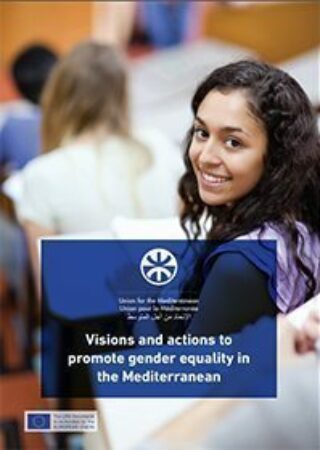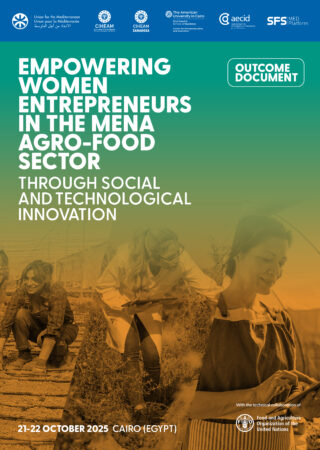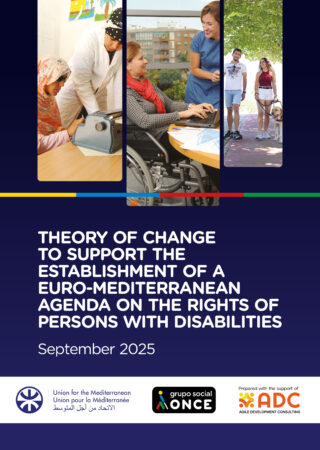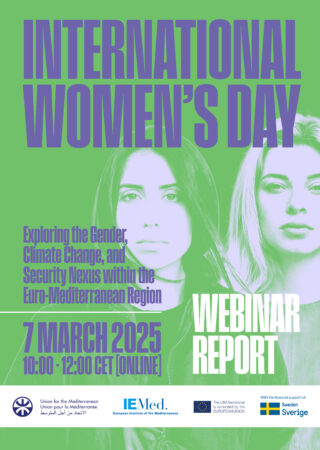
Visions and actions to promote gender equality
Gender equality is not only a fundamental human right, but is today a significant marker of development in our societies. It is widely recognised that women empowerment is a precondition for prosperous, stable and sustainable societies as strong evidence shows that improving gender equality can enhance productivity and improve the performance of businesses and institutions.
Therefore, achieving gender equality is a fundamental contribution to address the pressing challenges we are facing today at global level.
In the Euro-Mediterranean region, significant progress has been made over the past years in closing gaps between men and women. In many countries, there are more women attending universities than men, and there are also positive trends in women’s participation in the economic, political, civil, social and cultural spheres of life.
However, gender equality remains a key issue in the region. The educational gains achieved by women are yet to translate into concrete results in terms of greater empowerment and equal perspectives. Such persistent inequalities incur high costs for the region and hamper the ability for sustainable economic growth and good governance.
More and continued efforts are therefore needed, by all stakeholders, to address these challenges. This is why the Union for the Mediterranean has put women empowerment at the heart of its strategic priorities for the enhancement of regional cooperation in the Mediterranean. Mandated by the Ministers of its 43 Member States, notably through the Ministerial Declarations of Istanbul, Marrakech, Paris and now Cairo, the UfM has been actively setting a regional, structured and inclusive agenda to promote women’s economic, social and political rights in the region in close cooperation with all regional stakeholders through three dimensions-political fora, policy dialogues and projects.
These three levels of action acknowledge the key importance of expanding and reinforcing collective efforts and complementarities. The UfM is thus determined to consolidate its role as a regional multi-stakeholder platform for all EuroMediterranean actors to foster synergies in the field of women empowerment, as it is in a unique position to facilitate regional dialogue and strategic partnerships in the region.
Authors: Mariano Rajoy, President of the Government of Spain; Marie-Louise Coleiro Preca, President of Malta; Mariya Gabriel, European Commissioner for Digital Economy and Society; Hala Lattouf, Minister of Social Development, Jordan; Nathalie Loiseau, French Minister in charge of European Affairs; Maya Morsi, President of the National Council of Women, Egypt; Tedros Adhanom Ghebreyesus, Director General of the World Health Organization; Patricia Espinosa, Executive Secretary of the United Nations Framework Convention on Climate Change; Faten Kallel, Secretary of State responsible for Youth, Tunisia; Neziha Labidi, Minister of Women, Family and Childhood, Tunisia; Teresa Fragoso, President of the Commission for Citizenship and Gender Equality, Portugal; Asma Lamrabet, Director of the Center for Women’s Studies in Islam in the Rabita Mohammadia des Olémas, Morocco; Cosimo Lacirignola, Secretary General of the International Center for Advanced Mediterranean Agronomic Studies; Delphine Borione, Permanent Representative of France to the Food and Agriculture Organization; Sanem Oktar, President of KAGIDER, Turkey; Aida Zubčević, President of the National Association of Business Women, Bosnia and Herzegovina; Clara Gaymard, President of the Women’s Forum, France; Ritxar Bacete González, Hombres por la Igualidad; Rana Dajani, Expert on Genetics of Populations, Jordan; Krizia Nardini, MenEngage Europe; Lina Khalifeh, Beneficiary of the UfM labelled project WOMED;
November 2017




